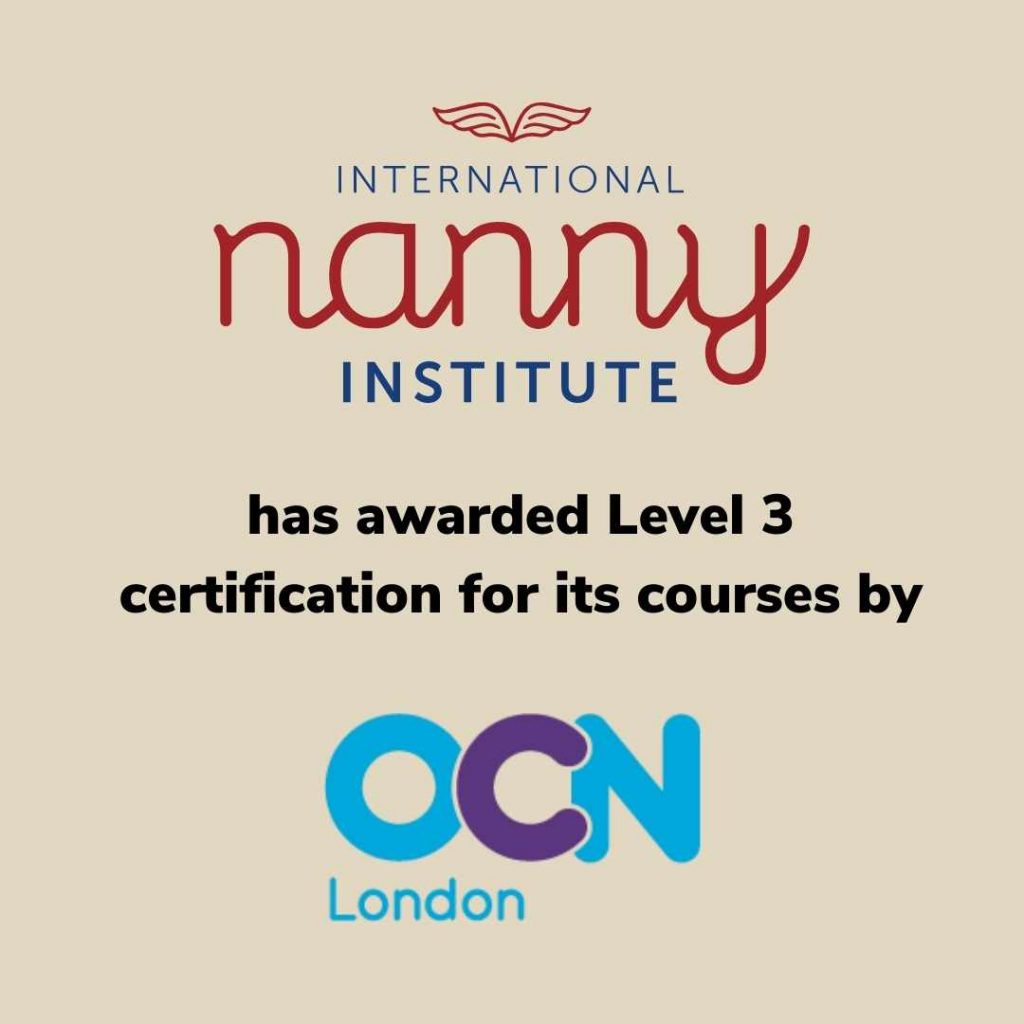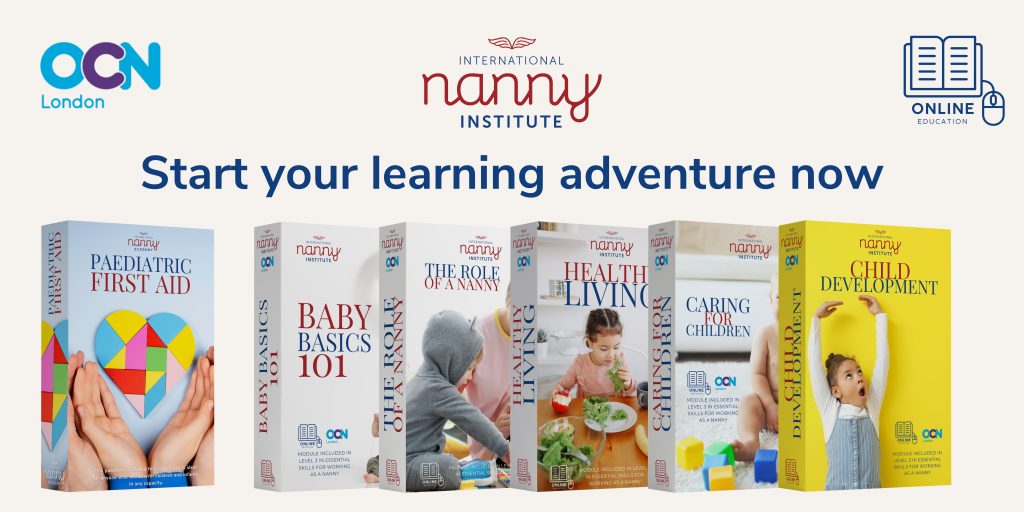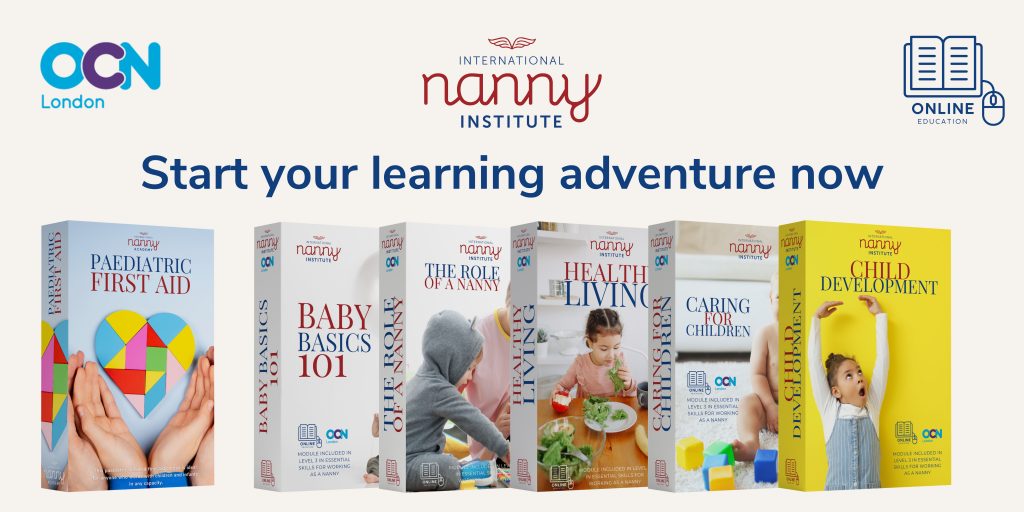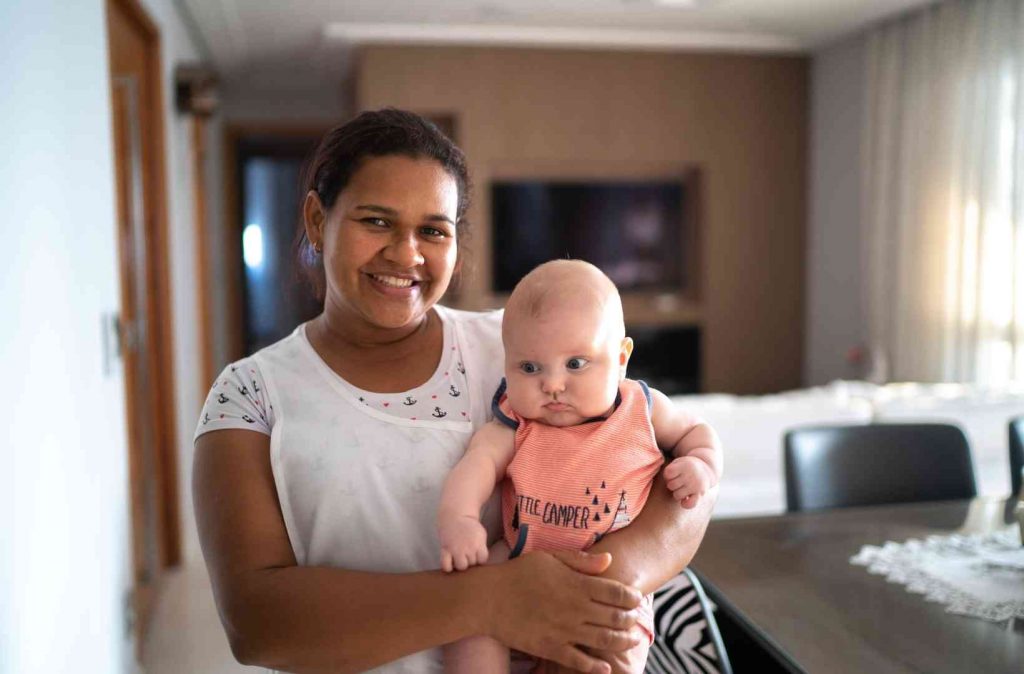In any career, continuous professional development is vital. Completing ongoing training helps you grow as a professional by gaining new knowledge, reflecting on your experience and mastering new skills to take back into the workplace.
Professional development also demonstrates your passion and commitment to your sector and shows you are dedicated to your chosen career.
When working with young children in private, domestic households, earning an OCN-London approved qualification via our course, Healthy Living, caregivers can ensure they are getting ready for a professional childcare placement.
With a growing public awareness of, (and interest in) health, there are a range of different courses and qualifications available for those interested in healthy lifestyles.
The International Nanny Institute Healthy Living course has many unique benefits and features that make it the perfect fit for nannies and others in the domestic childcare field.
Tailor-made for nannies
With an array of different courses related to caring for children available, it can be difficult to know which to choose.
The International Nanny Institute Healthy Living course has been carefully curated by a team of experts who are committed to maintaining high standards and staying up-to-date in the field of childcare.
Our experts specialise in a range of different fields and include practical advice as well as academic information. Our courses have been designed with nannies in mind, so they will be well suited to the day-to-day work of keeping children and their families active and nourished.
Learn to support children’s wellbeing
As society has a renewed interest in children’s wellbeing, it’s a great time to ensure that your knowledge is up to date.
We all want the best for the children in our care and while we aim for them to grow up to be healthy and happy, it’s not always easy to know how to achieve this.
Our ONC-London certified Healthy Living course will help you build up the knowledge and skills necessary to support children and their families with healthy eating, physical activity and all round the best wellbeing practices.

Improve your own wellbeing
When caring for young children, caregivers often forget that their personal needs are also important.
Our Healthy Living course is designed to encourage nannies to consider their own lifestyle while also learning how to support children and their families in making positive choices around exercise and nutrition.
Healthy Living gives students a chance to reflect on their personal wellbeing and inspires them to take small steps towards improving their own sense of wellbeing through managing stress, eating well and getting enough physical exercise.
Broaden your skill set
Being a nanny can be a demanding job that requires a broad set of skills.
Completing our internationally certified Healthy Living course is one way to showcase your understanding of proper nutrition, age-appropriate exercise, and ability to provide children with the building blocks for living a healthy lifestyle.

Demonstrate a specialism
As the nanying industry evolves, more nannies are specializing in different areas. Some nannies support families with sleep routines while others specialise in newborn care or working with multiple children at once, but increasingly there is a need and demand for nannies who are able to support children in the process of developing healthy lifestyles.
As many families begin to focus on their children’s physical and mental health, our internationally certified Healthy Living course is a fantastic way to demonstrate that you have developed your skill set in this area, setting you apart from other applicants for jobs.
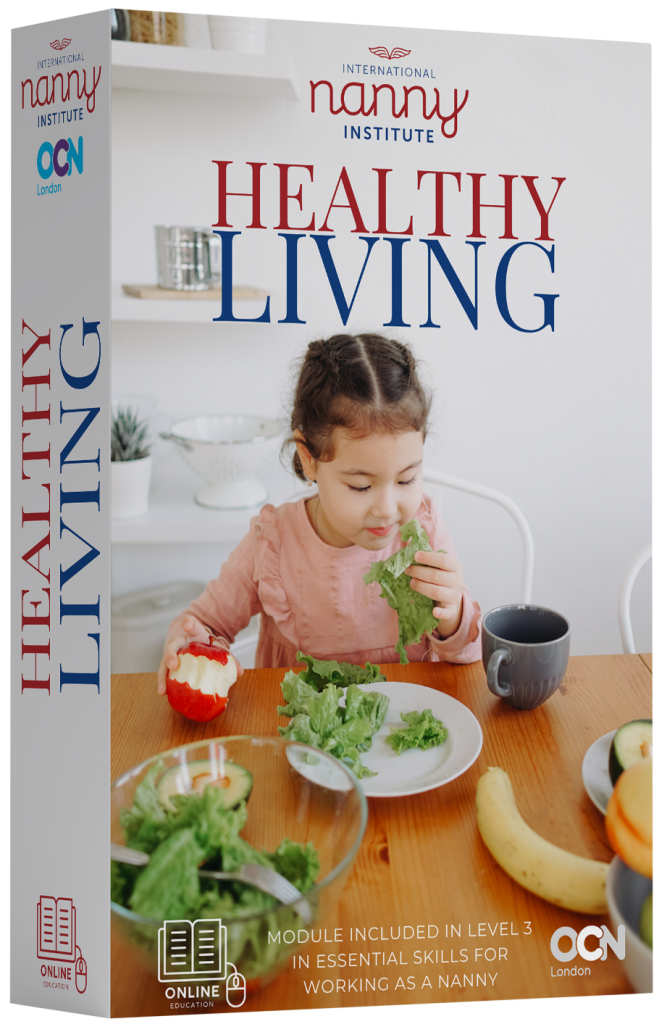
The Healthy Living course consists of 4 weekly, in-depth training sessions supplemented with a test for checking your understanding.
We also offer an interactive group forum so you can discuss what you are learning with other students in your cohort. This forum can help foster understanding, learning and personal development on a deeper level.
Healthy Living is taught as an online course 100% online and it will take about 60 hours to complete over 8 weeks, giving you a window of time to complete the course and leaving you in control of how and when you study.
If you like what you’ve read about our Healthy Living course and think it might be a good fit for your professional development, visit our website at www.international-nanny.institute!
We can’t wait to have you on board!





